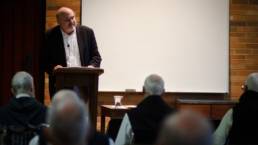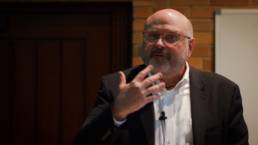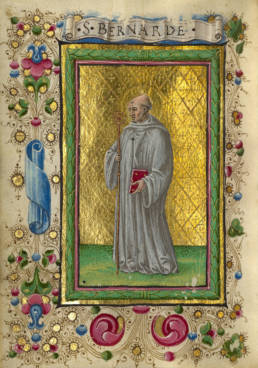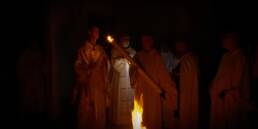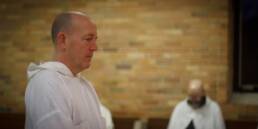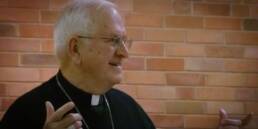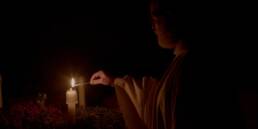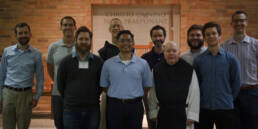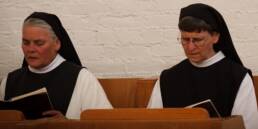At age 23, Bernard entered Citeaux with 30 companions. He was soon named abbot of Clairvaux and directly influenced the Cistercian Order’s phenomenal rise during the 12th century. A monk, a mystic, an abbot, a counselor to popes, and ultimately a doctor of the Church, Bernard is one of the spiritual giants. But he was also a human being. According to Dr. MIchael Voigts, that humanity is most evident in Bernard’s prodigious correspondence.
Through multiple conferences on March 26 and March 27, Voigts gave the monks of Gethsemani an in-depth look at the themes, teachings, spiritual treasures and very human elements found in the great saint’s letters. Whether addressing novices, popes, royalty or religious, Bernard framed much of his letters in the context of intentional spiritual direction. “Bernard’s letters contain an approach to spiritual direction based on a pragmatic method of human spirituality in which the objective of one’s intimacy with God is not actualization of the self, but a manifestation of love for others,” Voigts said.
Voigts is associate professor of Spiritual Formation at Asbury Theological Seminary and has focused much of his studies on the Cistercian tradition. In addition to several articles, he is the author of The Fourth Degree of Prayer and Letters of Ascent: Spiritual Direction in the Letters of Bernard of Clairvaux. He is also a member of the Lay Cistercians of Gethsemani Abbey.
The monks offer thanks for Dr. Voigts’ informative and engaging exposition of our Cistercian heritage.
Recent News
February 14, 2025
February 9, 2025 – Postulant Keith Becomes Br. Gerard
Postulant Keith is welcomed into the…
February 5, 2025
February 1, 2025 – We Welcome David Hynds to our Community
We welcome David Hynds to the community
